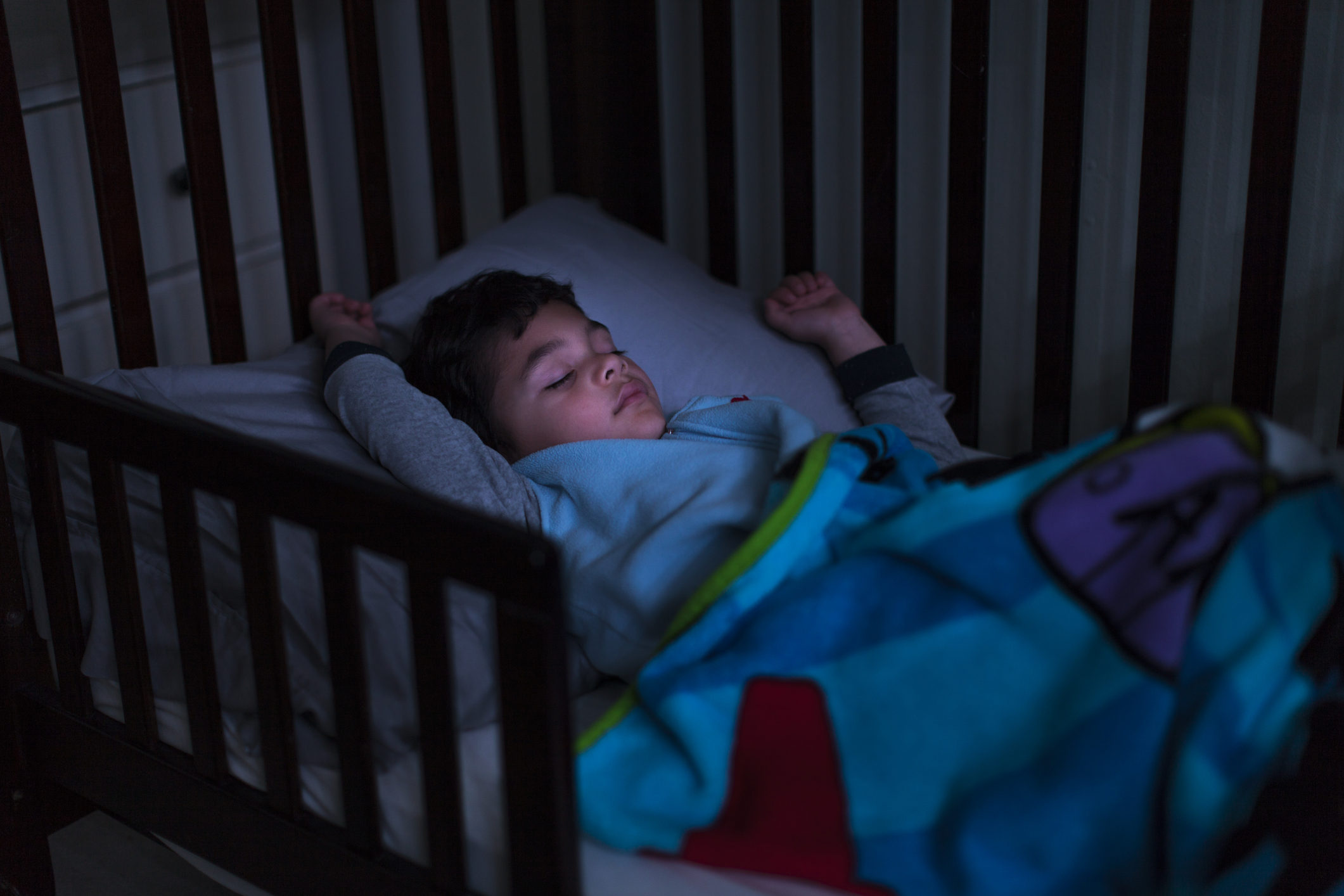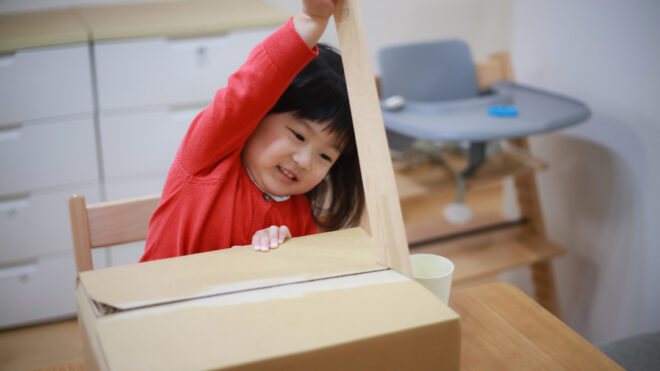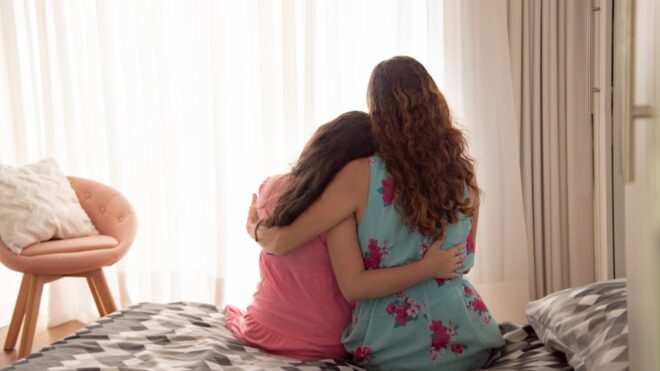
When you become a parent, you hear others complain about infant sleep. But why does it feel like no one talks about the struggles of toddler sleep?! Regressions. Transitions. Nightmares. Unfortunately, you’re not done with sleep disturbances once your child figures out how to sleep through the night.
More from CafeMom: Mom of Newborn Illustrates Why She's Not 'Nice' in the Mornings & It's so Accurate
Toddlers sometimes experience sleep disturbances.
These are usually nightmares or night terrors. Although they can feel traumatic for both the child and the parent, they’re not uncommon.
“Toddlers can have trouble sleeping, like not wanting to go to bed because they want to do things independently," Shelby Harris, director of sleep health at Sleepopolis, tells CafeMom. "They might wake up at night to find comfort or wake up too early. When they switch from a crib to a bed, it can be tricky. Sometimes they don't want to nap, which can make them tired. Scary dreams can also make them upset.”
Harris is a licensed clinical psychologist in White Plains, New York. She specializes in behavioral sleep medicine, or BSM, and uses evidence-based methods to work with babies through adults.
Nightmares and night terrors are real even for toddlers.

Nightmares are vivid dreams or scenarios that can be upsetting to the person having them. They happen more frequently during rapid eye movement, or REM, sleep. Most times, nightmares will cause the person to wake up. A person will usually remember these vivid, often scary dreams when they do.
“Nightmares typically happen during REM sleep when the brain is very active and the body cannot move due to essentially being turned off. Kids remember their bad dreams or at least pieces of them,” Harris tells us.
Night terrors happen a few hours after the person is asleep. When a toddler has a night terror, the child is wild with fear and extremely difficult to wake up or comfort. Night terrors are pretty upsetting for the person watching the toddler, too.
A child having a night terror will usually scream.
The child sometimes get out of bed or run out of the room. The toddler can flail limbs and even be completely unaware another person is in the room. After a few minutes, the toddler will settle and return to sleep. Children rarely remember having a night terror the next day on their own.
“Night terrors are like intense fear moments and blood-curdling screams during deep sleep," Harris shares. "They happen seemingly out of nowhere, but kids don't wake up fully and rarely remember what scared them.”
Many factors can cause sleep issues in toddlers and children, such as changes in schedule, transitions, or stress. Some sleep disturbances, like sleepwalking, can even be hereditary.
They eventually go away as your child gets older.
“Nightmares and night terrors in kids can happen because of things like not having a regular sleep schedule, feeling stressed or worried, the way they get ready for bed, where they sleep, what they eat before sleep, watching scary movies, being sick or even just changes in how they're growing.” Harris tells us.
Nightmares are more common and usually go away as your child ages. Night terrors, however, are not as common. They also happen more often in younger children.
During a nightmare, Harris says, the child having one will be more afraid. But during a night terror, the person watching the episode is likely to be more upset.
There are ways to help your child during a nightmare or night terror.

During a sleep disturbance, comfort your toddler by sitting next to them. Remain calm. Stay confident. Try rubbing their back and talking to them in a soothing voice.
“Creating a cozy bedtime routine and sleep space can make a big difference. Try to limit screen time and sugary snacks before bed, and make sure your child gets enough playtime during the day, Harris advises.
Keep bedtime routines simple and predictable. Burning energy off during the day helps as well. Be sure your child is getting enough sleep. Be mindful if they’re behind on sleep, either from naps or nighttime.
Know when to talk to your pediatrician.
Many children have nightmares and even night terrors on occasion. If either nightmares or night terrors are a frequent occurrence for your child, however, consider talking to your pediatrician or even a sleep specialist.
“If your little one is having trouble sleeping a lot, and it's making them grumpy or tired during the day, it's a good idea to talk to their doctor. If what the doctor suggests doesn't work, you might think about seeing a sleep specialist for kids,
Harris suggests. "You could write about what happens each night in a diary.”
A medical professional can perform sleep studies, check bloodwork for any imbalances, or simply discuss what you’re seeing as a parent. They can help find a solution so your child (and you!) can get some much-needed sleep.
Keep trying and stay positive.

“Dealing with sleep problems in little ones can be tough, but you're not alone. Stay patient and keep trying different things — it might take time to figure out what works. Ask a doctor for help if things don't improve,” Harris says.
“Don't forget to take care of yourself too — parenting can be exhausting,” she advises. “Keep believing in yourself and trust your instincts as a parent. You've got this!”
You are your child’s biggest advocate. You know them best! If they’re struggling with sleep, reach out to their doctor. If you aren’t finding answers, keep trying. And remember: You are not the only parent of a child struggling with sleep.



